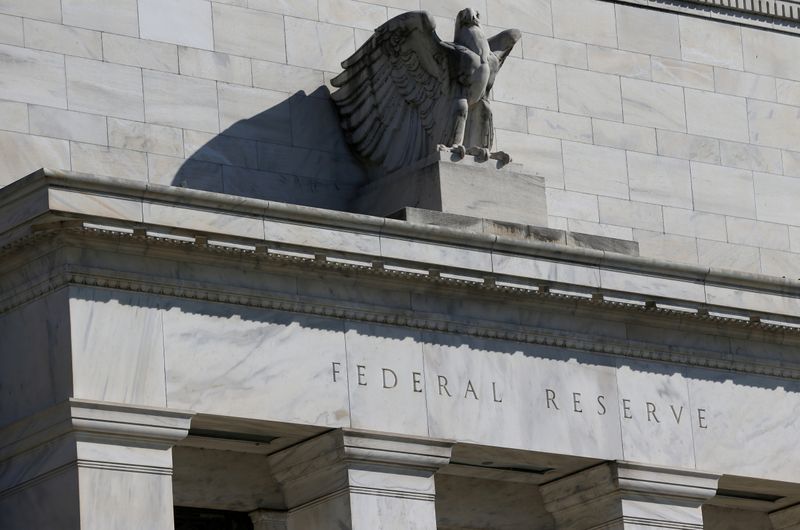By Pete Schroeder and Michelle Price
WASHINGTON (Reuters) - The U.S. Federal Reserve is talking with lenders about potentially going easy on them if they deplete their liquidity reserves while trying to support customers hurt by coronavirus disruption, according to three people with knowledge of the discussions.
The European Central Bank this week urged lenders to use their liquidity reserves as buffers to support the economy and said it would allow them to fall short of some cash requirements, in what is rapidly becoming the first test of key liquidity rules introduced following the 2008 financial crisis. [L8N2B55GT]
The Fed has not said publicly whether it will also take a flexible stance, but the sources said Fed supervisors are encouraging lenders to use the same liquidity buffers to keep lending. They are also discussing with banks some degree of leniency if lenders' breach a key U.S. liquidity threshold.
Depending on the circumstances, that could mean giving the lender in question months to devise and execute a plan to slowly rebuild the buffer, the sources said.
That should be a comfort for airliners, cruise operators, hotel groups and entertainment companies, which are feeling revenue strain as governments globally ban travel and large events in a bid to arrest the spread of the flu-like virus.
Airplane maker Boeing Co (N:BA), hotel operator Hilton Worldwide Holdings Inc (N:HLT) and theme park company SeaWorld Entertainment Inc (N:SEAS) are among the companies that drew on or upsized billions of dollars in credit lines this week amid growing market fears over a liquidity crunch.
The Fed declined to comment on Friday.
In 2014, federal banking agencies adopted the Liquidity Coverage Ratio rule which requires banks to hold high-quality liquid assets, such as stocks and bonds, that match or exceed their projected net cash outflows over a 30-day stress period.
This ratio, which is calculated daily, includes potential outflows from clients drawing on lending facilities. While the minimum ratio for big banks is 100%, most held ratios closer to or exceeding 120%, December 2019 bank filings show.
If a big bank falls below the 100% threshold on any business day it must alert the Fed, and if it falls short for three consecutive business days it must swiftly give the Fed a plan for replenishing its liquid assets. In theory, the Fed could also bring an enforcement action against the bank.
The rule was designed to ensure banks can meet their liquidity obligations at times of stress, and it explicitly allows the Fed to be flexible when enforcing it. But lenders have nevertheless been wary of dipping into the buffers for fear of attracting adverse scrutiny from their supervisors or the market.
One of the sources with knowledge of the Fed's discussions with lenders said big banks were unlikely to be in a position yet where they need to dip below the 100% threshold, due to their robust liquidity ratios. But another of the sources said Fed supervisors and bank executives were discussing the degree of leeway the Fed may give lenders if this did eventually become necessary.
Chair Jay Powell signaled a willingness to be flexible on the threshold in September when he told reporters the central bank would want lenders "to use their liquidity buffers in times of stress rather than pull back from the markets and pull back from serving their clients."
The third source, though, said banks would be more comfortable dipping into the buffers if the Fed made a formal statement urging them to do so.
Critics of the rule have argued strictly enforcing the ratio during times of market stress would exacerbate a liquidity crunch and hurt the economy as banks pull back from lending and scramble for the same liquid assets.
Emergency lending to support businesses "is what the Fed expects the banks to be doing," said David Fanger, Senior Vice President at Moody's.
